


This article gently explains ten essential ICD-10 codes related to cardiac arrest, highlighting their importance in ensuring accurate medical documentation and compassionate patient care. It underscores that proper coding for conditions such as ventricular fibrillation or asystole is vital for effective treatment strategies. By doing so, we enhance the overall management of cardiac health, ensuring that patients receive the appropriate care tailored to their unique circumstances. Remember, your health matters, and understanding these codes can make a significant difference in your care journey.
Understanding the complexities of cardiac arrest is essential in today’s healthcare landscape, where accurate diagnosis and treatment can significantly influence patient outcomes. This article gently explores the vital ICD-10 codes related to cardiac arrest, offering healthcare professionals valuable insights into their application and importance.
How can mastering these codes enhance patient care and ensure effective management of this critical condition? By reflecting on this question, we can uncover the crucial role that precise coding plays in both treatment strategies and documentation practices, ultimately fostering a supportive environment for those affected.
At Amavita Heart and Vascular Health®, we understand that managing heart failure can be a daunting experience. That's why we lead in heart failure management with a patient-centered approach that combines advanced medical techniques with compassionate care. Our innovative outpatient facilities allow you to receive state-of-the-art heart and vascular procedures and return home the same day, making your experience as comfortable as possible.
We utilize and tailor treatment strategies to meet your unique needs, ensuring you receive the highest quality of care. Our dedicated team places a strong emphasis on improving outcomes for senior populations, and we are committed to educating you and your loved ones about the risks and management of heart failure. This commitment makes Amavita a trusted partner in your journey toward comprehensive cardiovascular health.
We invite you to reach out and discuss your concerns with us. Together, we can navigate this path with understanding and support, ensuring you feel informed and cared for every step of the way.
ICD-10 Code I46.9 refers to heart failure of unknown origin, a term that can understandably raise concerns. This protocol is applied when the reason for cardiac arrest is not documented or understood, which can be quite unsettling for patients and their families. It’s essential for healthcare professionals to use this identifier accurately, as it helps ensure correct billing and effectively represents the individual’s condition in medical records.
Understanding when to implement this protocol can significantly impact and follow-up care. In addition to this, knowing that there is a system in place to address such situations can provide some comfort. If you or a loved one are facing this diagnosis, remember that you are not alone, and support is available to help you navigate these challenges.
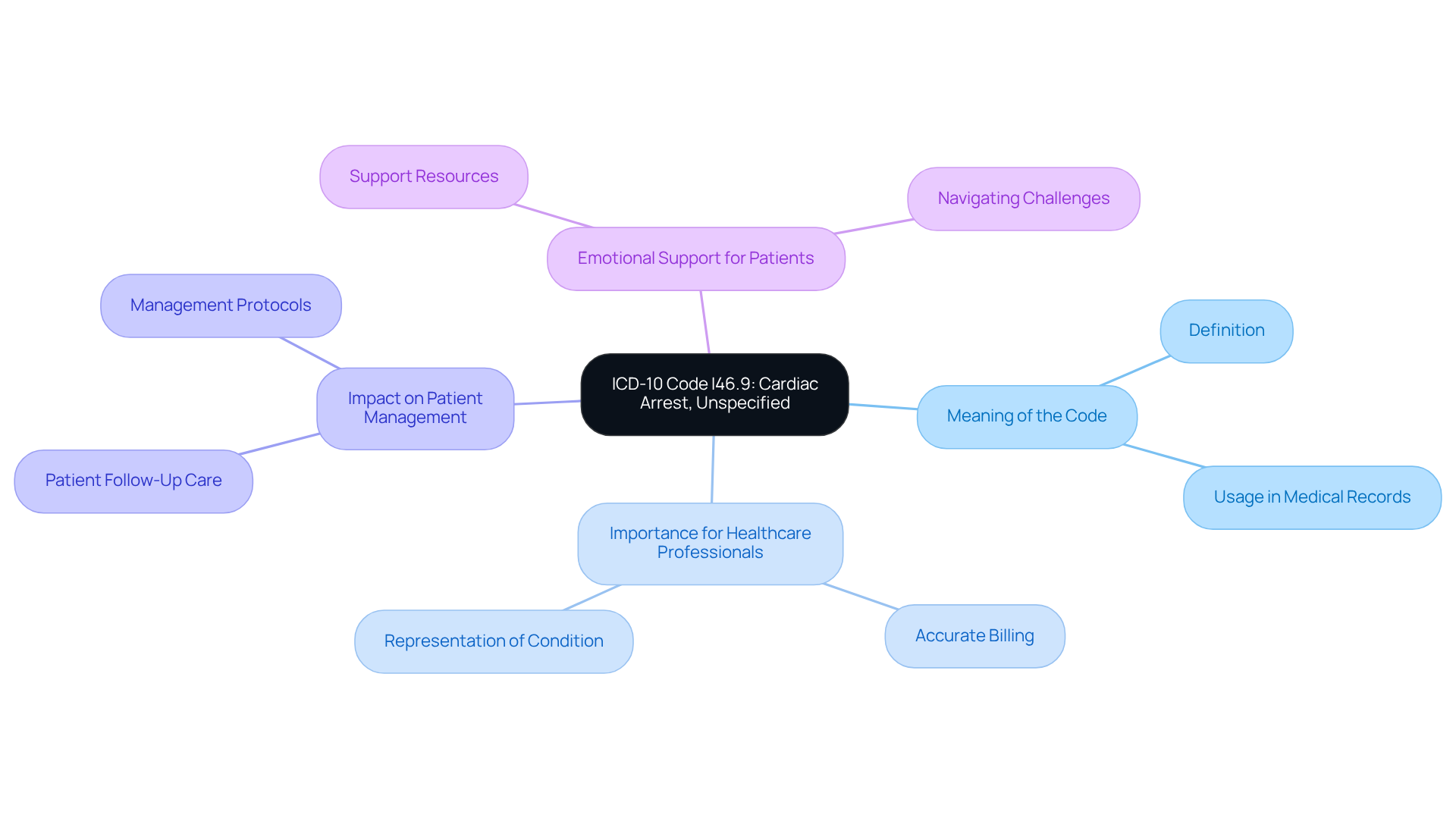
ICD-10 Code I46.0, which is classified under cardiac arrest ICD 10, is designated for heart arrest due to ventricular fibrillation, a serious arrhythmia that can lead to sudden heart failure if not treated quickly. This code is vital for healthcare providers, as it identifies a specific underlying cause related to cardiac arrest icd 10, enabling like defibrillation and advanced cardiac life support.
In skilled nursing facilities, addressing cardiovascular challenges is of utmost importance. By accurately coding this condition, we not only support the effective management of individuals but also enhance resource allocation in emergency situations.
By utilizing advanced diagnostic tools and ensuring smooth coordination of care, facilities can significantly improve patient outcomes and reduce hospital readmissions. Remember, we are here to help you navigate these health challenges with compassion and understanding.
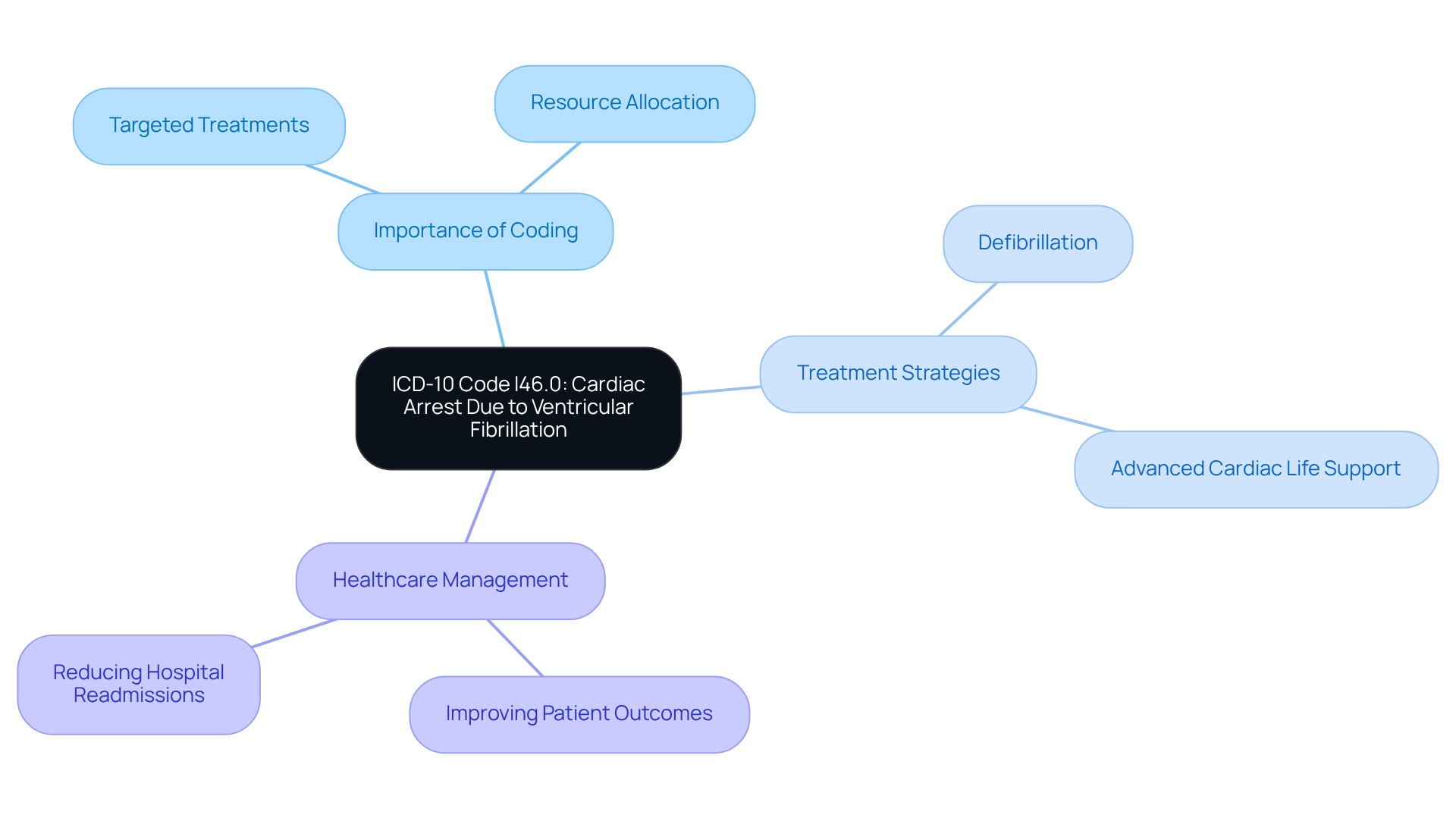
The ICD-10 Code I46.1 pertains to cardiac arrest icd 10 due to asystole, a serious condition characterized by the absence of electrical activity in the heart. This situation requires immediate action, typically through cardiopulmonary resuscitation (CPR) and advanced life support measures. It’s crucial for healthcare providers to document this code accurately to ensure that individuals, especially those with higher risks such as diabetes or hypertension, receive the timely and appropriate care they need.
At Amavita Heart and Vascular Health, we are committed to providing comprehensive evaluations and advanced imaging capabilities, which help us track patient outcomes effectively. We understand that navigating health concerns can be daunting, but rest assured, our team is here to support you every step of the way. Your health and well-being are our top priorities, and we are dedicated to ensuring you receive the you deserve.
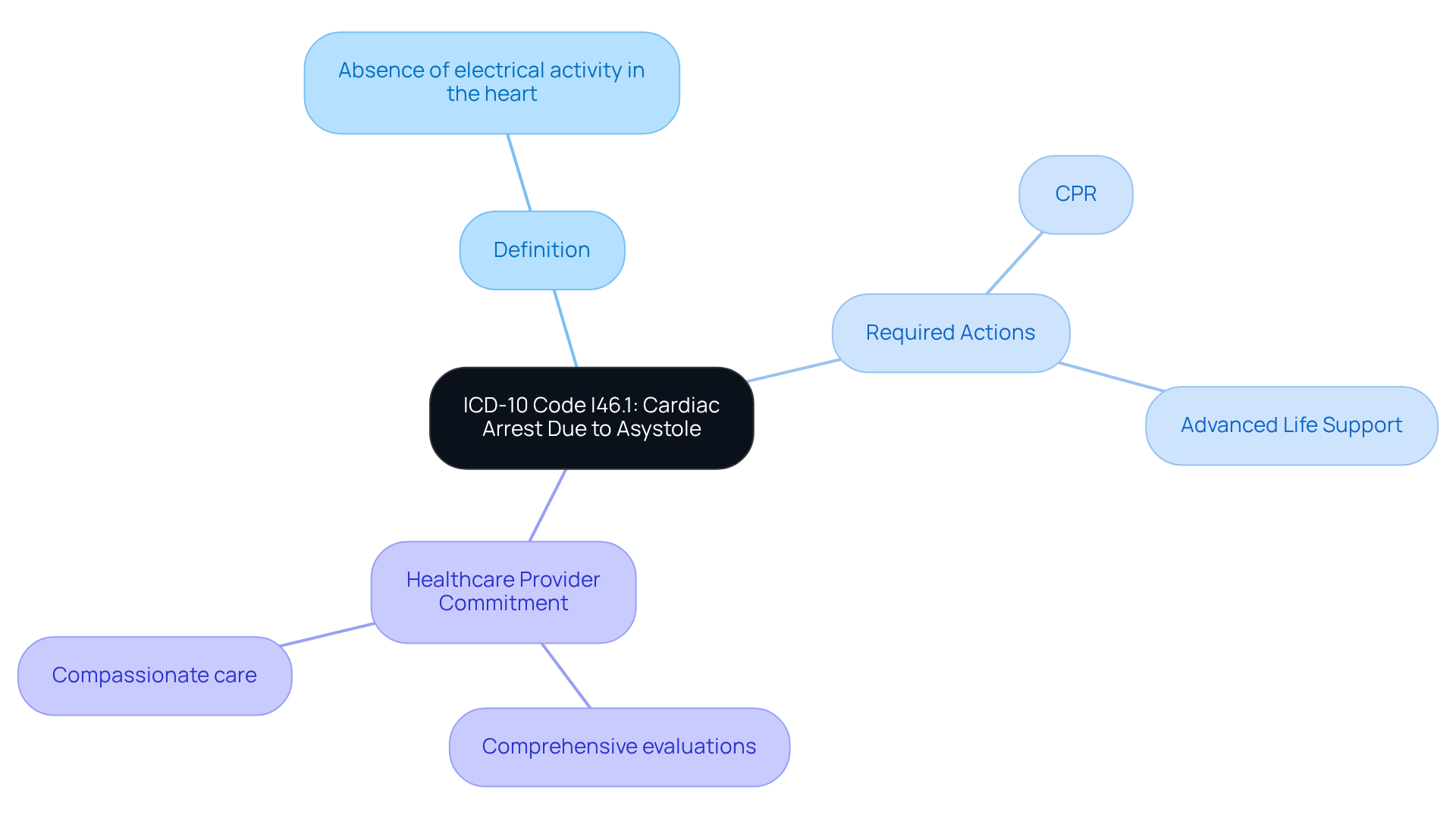
ICD-10 Code I46.8 is used for other forms of heart failure that aren't specified elsewhere in the coding system. This code is particularly important in situations where the cause of heart failure is known but doesn't fit neatly into existing categories. By using this code correctly, we ensure thorough documentation, which is vital for Amavita's CardioElite™ program.
In addition to this, CardioElite™ offers advanced diagnostic information and continuous cardiology consultation, which helps in managing patients proactively. This approach not only aids in and outcomes across different groups but also addresses the immediate needs of patients. By focusing on comprehensive care, we aim to reduce readmissions in skilled nursing facilities, providing a nurturing environment for recovery.
We understand that navigating health concerns can be overwhelming. Rest assured, our team is here to support you every step of the way, ensuring you feel valued and cared for throughout your journey.
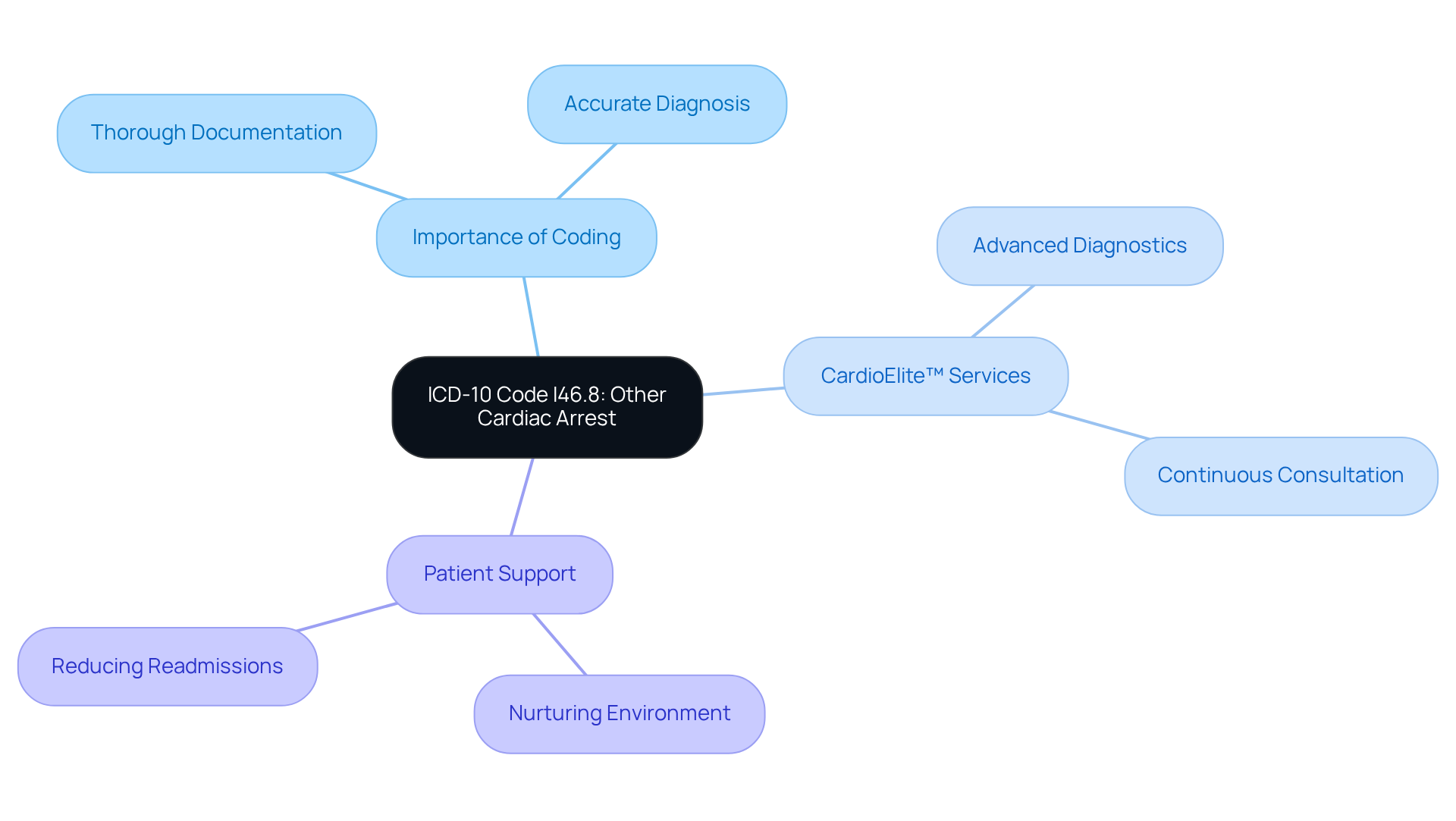
ICD-10 Code I46.2 is specifically used when cardiac arrest occurs during a medical procedure, a situation that understandably raises concerns for patients and their families. This code is vital for documenting adverse events that may arise during surgeries or other interventions, allowing healthcare professionals to conduct thorough reviews of procedural safety and efficacy.
By coding these scenarios accurately, healthcare facilities can better recognize potential risks, enhancing safety protocols for individuals receiving care. Your safety is our priority, and we are committed to continually you receive.
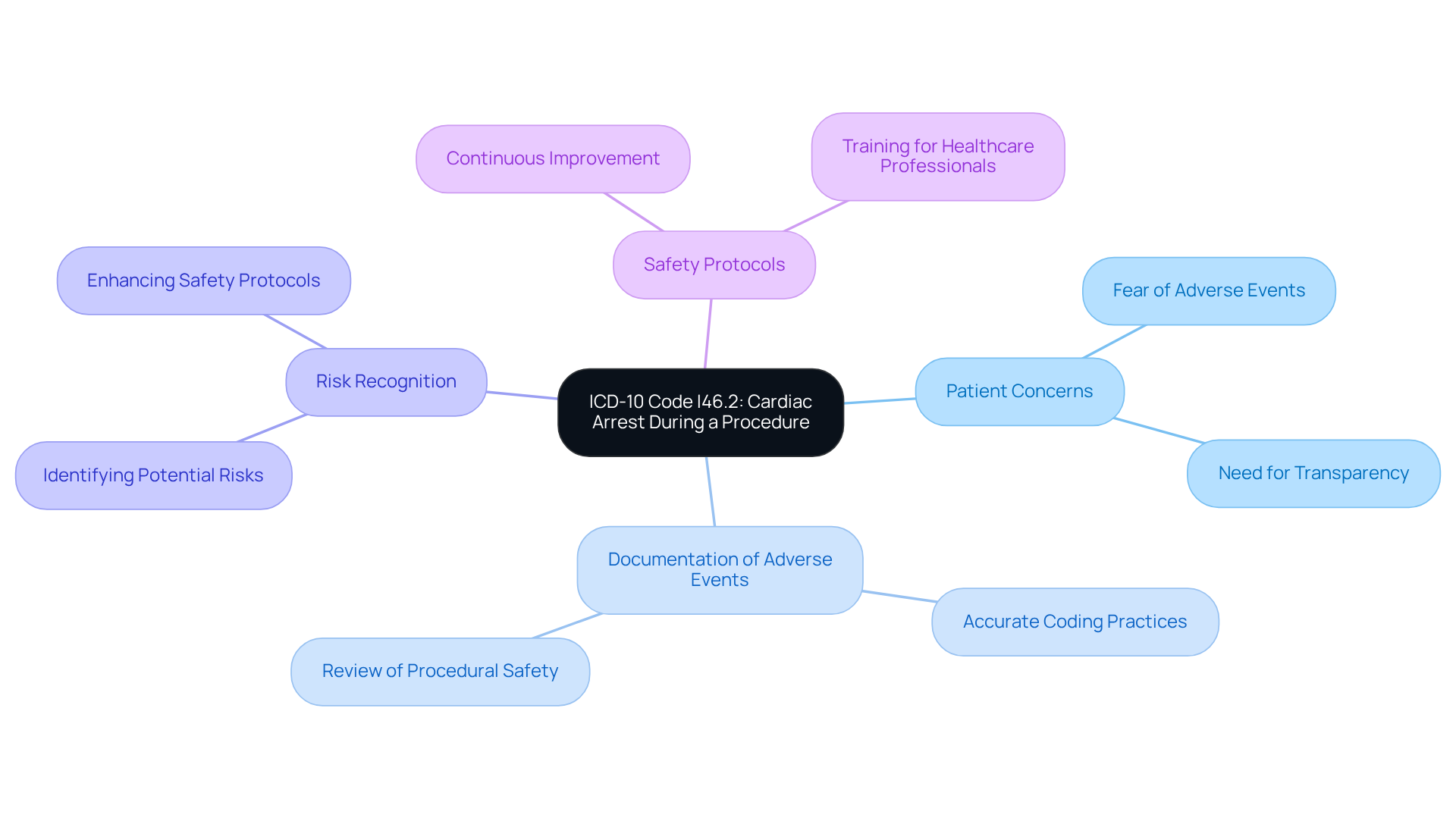
ICD-10 Code I46.3 is designated for heart failure that arises from causes unrelated to the heart, such as respiratory failure or drug overdose. This code plays a vital role for healthcare providers, allowing them to accurately document the circumstances surrounding heart failure. Understanding these underlying causes is essential, as it can significantly and patient outcomes. By grasping the reasons behind heart failure, we can work together to develop effective prevention strategies that truly make a difference in your health and well-being.
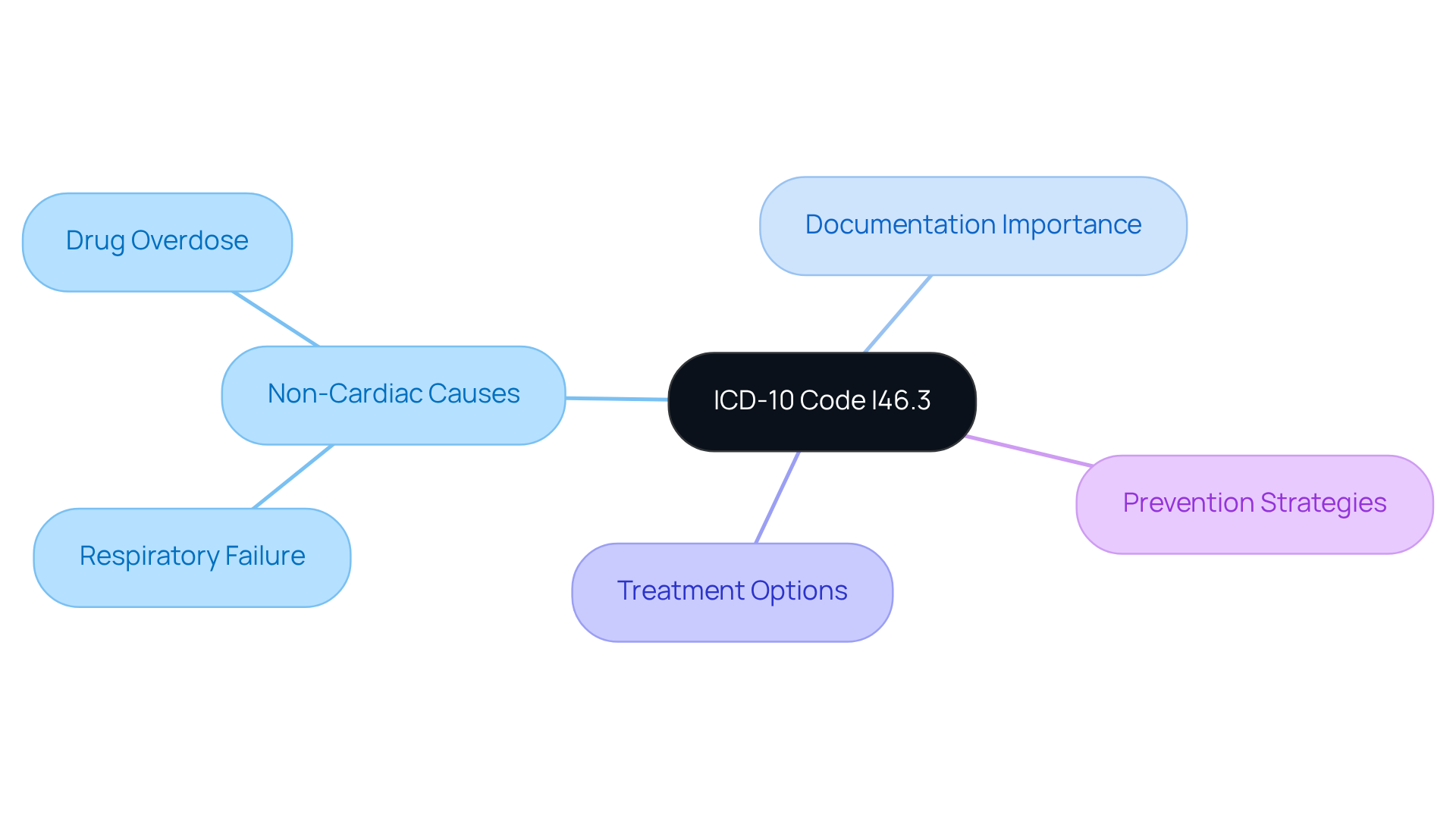
ICD-10 Code I46.4 is specifically used for heart failure resulting from trauma, such as serious injuries from accidents or acts of violence. Understanding this code is essential, as it helps accurately document the circumstances surrounding heart failure. This documentation plays a vital role in guiding treatment approaches and ensuring appropriate resource allocation in emergency care settings.
Have you ever considered how trauma can impact heart health? Recognizing the connection between trauma and heart failure is crucial for improving outcomes in trauma care. We are here to support you and ensure that you receive the .
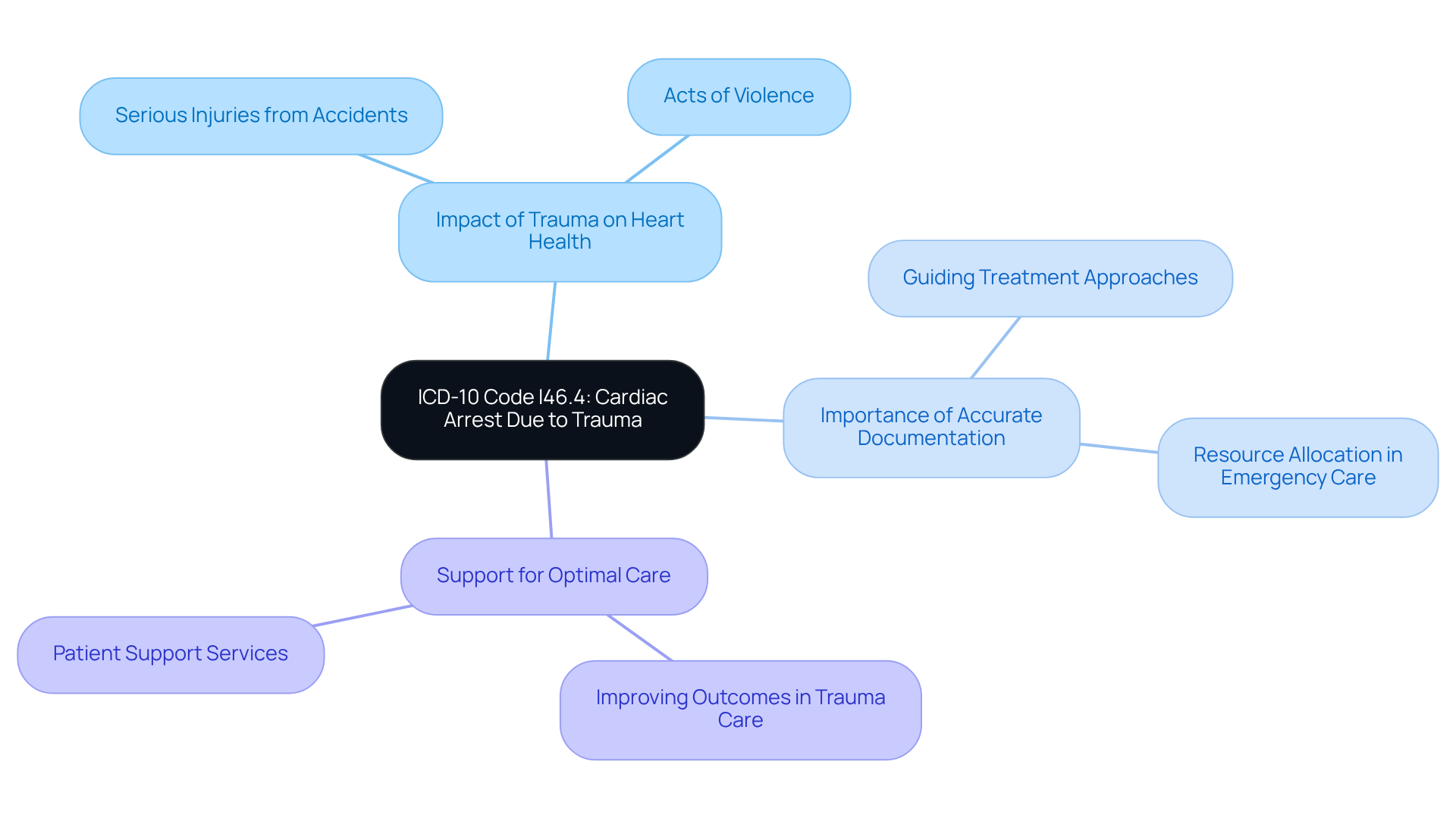
ICD-10 Code P29.0 is designated for heart failure in newborns, a condition that understandably raises concerns for many families. This code plays a vital role in accurately documenting cases within this vulnerable group, where the causes of heart failure can differ significantly from those seen in older patients. Understanding these differences is crucial for us to grasp the epidemiology of heart failure in infants and to develop targeted strategies that can improve outcomes for these little ones.
It’s important to recognize that precise coding not only aids in research but also helps healthcare providers offer the best possible care. By focusing on the unique needs of infants, we can ensure that the right support and interventions are in place. If you have any concerns about your child's health, please reach out to your healthcare provider. You are not alone in this journey, and there are to help you navigate these challenges with compassion and care.

When it comes to recording heart failure in medical coding, it’s essential to approach this with . Here are some optimal methods to ensure that every detail is captured compassionately:
By following these methods, we can create a supportive environment that prioritizes the health and well-being of our patients. Remember, your health matters, and we are here to help you every step of the way.

Understanding the essential ICD-10 codes for cardiac arrest is vital for effective patient management and accurate healthcare documentation. This article highlights ten significant codes, each representing different scenarios of cardiac arrest, from unspecified causes to those resulting from trauma or medical procedures. Recognizing these codes enables healthcare providers to deliver targeted treatment strategies and ensures proper billing and documentation practices.
Key insights include the importance of specific codes like I46.0 for ventricular fibrillation and I46.1 for asystole, which guide immediate medical responses and enhance patient outcomes. In addition to this, the necessity of thorough documentation and collaboration among healthcare professionals is emphasized to improve care quality and compliance with coding standards.
Ultimately, the effective use of ICD-10 codes not only aids in individual patient care but also contributes to broader healthcare practices by facilitating research and improving resource allocation. It is imperative for healthcare providers to stay informed about these codes and best practices, ensuring that every patient receives the comprehensive and compassionate care they deserve. Remember, your role is crucial in making a difference in patients' lives, and together, we can foster an environment of support and understanding.
What is Amavita Heart and Vascular Health® known for?
Amavita Heart and Vascular Health® specializes in heart failure management with a patient-centered approach that combines advanced medical techniques and compassionate care.
How does Amavita ensure a comfortable experience for patients?
Amavita utilizes innovative outpatient facilities that allow patients to receive state-of-the-art heart and vascular procedures and return home the same day, ensuring a comfortable experience.
What treatment strategies does Amavita employ for heart failure management?
Amavita employs minimally invasive techniques and tailors treatment strategies to meet the unique needs of each patient, focusing on providing the highest quality of care.
What is the significance of the ICD-10 Code I46.9?
ICD-10 Code I46.9 refers to cardiac arrest of unknown origin and is used when the reason for cardiac arrest is not documented. It is important for accurate billing and representing the patient's condition in medical records.
How does understanding the ICD-10 Code I46.9 benefit patient management?
Understanding when to implement this protocol can significantly impact patient management and follow-up care, providing comfort that there is a system in place to address such situations.
What does the ICD-10 Code I46.0 represent?
ICD-10 Code I46.0 is designated for cardiac arrest due to ventricular fibrillation, a serious arrhythmia that can lead to sudden heart failure if not treated quickly.
Why is accurate coding of cardiac arrest important in healthcare?
Accurate coding helps healthcare providers identify specific underlying causes related to cardiac arrest, enabling targeted treatment strategies and enhancing resource allocation in emergency situations.
How does Amavita support patients facing cardiovascular challenges?
Amavita is committed to helping patients navigate health challenges with compassion and understanding, utilizing advanced diagnostic tools and ensuring smooth coordination of care to improve patient outcomes.